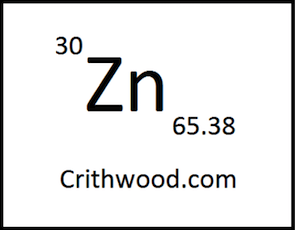
-----
How to Distinguish / Confirm Electrophoretic Coating ?
We order "electrophoretic coating" for some of our parts of connectors. These are required in Black, non-conductive finish...preferably matte finish. We can check for non-conductivity, and thickness but how to confirm the coated material itself? How to check if it was not EPOXY nor any other powder coating? Any solvents ? Any Heat test ? Need a fool-proof method. Also the coating thickness on "threads" is terribly uncontrolled. How to control ?
Pramod BapatQuality Control - Pune, Maharashtra, INDIA
2007
Bear with me a minute, Pramod -- but if I asked you to to meet me in New York and I suggested that you could do it by taking flight 1086 from Pune to New York. If you met me at the appointed time but I kept hounding you about whether you actually took flight 1086, you might rightfully say "I'm here -- what difference does it make?"
Similarly, if the coating meets your specs and requirements why do you need a "fool proof method" to know whether it was applied electrophoretically? But if the coating thickness on threads is thick and uncontrolled, it sounds like it doesn't meet your needs anyway. Please clarify, I can't understand why it matters, but knowing why it matters might guide us towards helping you. Thanks!

Ted Mooney, P.E.
Striving to live Aloha
finishing.com - Pine Beach, New Jersey
Ted can be retained for immediate
answers or long term project help
Dear Pramod,
My suggestion will be to check the thickness at various places on one part. If it is "Electrophoretic", it will be in very narrow range, say 3 to 5 microns. And it is very difficult to get such uniformity by any other method. Also, the electrophoretic finish will be smoother than powder coating and it will not have run down or dry finish defects as in liquid spray.
And lastly my one query, will any organic coating after curing be conductive ?
Regards,
- Pune, India
Ted, you are being philosophical!
Unfortunately, it seems Pramod is not bothering to check back and replying. But none the less there will be other readers.
To check for epoxy, place the product in sunlight for a few days. Ordinarily, everyone does not have a UV test setup. Epoxy will chalk when exposed to sunlight.
Mangesh has provided the check for E-coat. The variation in coating thickness is a good check. And since Pramod says that the coating thickness on threads is uncontrolled, there is a possibility he is getting powder coating! Charge concentration on sharp corners takes place in Powder coating but not in E-coat.
Mohali, Punjab, India
2007
Yes, I was being foolishly philosophical and wasting words, but the point remains that the coating that is on the parts either fills his needs or it doesn't; and whether it was applied electrophoretically is of little importance either way. The specification for the coating should specify maximum and minimum thickness. Of course, you are correct that if the coating is thick and uncontrolled on the threads it is unlikely that it was applied electrophoretically. And perhaps he is more concerned that it not be epoxy than that it be applied electrophoretically.

Ted Mooney, P.E.
Striving to live Aloha
finishing.com - Pine Beach, New Jersey
Ted can be retained for immediate
answers or long term project help
2007
Sound like Mr Pramod Bapat is getting Autophoretic instead of Electrocoating. If he finds out the difference, all his questions are justified!

Khozem Vahaanwala
Saify Ind
Bengaluru, Karnataka, India

2007
Dear Mr.Pramod,
It is better check it with
acetone
⇦ on
eBay
or
Amazon
[affil link] Flammable!
. If you will rub the pieces with rinsed cotton we will get the diff between powder coating and electrophoretic coating.
If further any query let me know.
Chemical Engg - Pune, India
"To check for epoxy, place the product in sunlight for a few days. Ordinarily, everyone does not have a UV test setup. Epoxy will chalk when exposed to sunlight."
This might work in India, but it would not work in Scotland.
It might also work in Florida, Australia, Africa...
Depends on how much UV is about. Unfortunately, here we have too little and epoxy won't chalk until maybe 3 years.

Geoff Crowley
Crithwood Ltd.
Westfield, Scotland, UK

April 16, 2008
June 15, 2008
Dear All,
Apologies for not being in the loop for quite some time. Nevertheless all your inputs/suggestions/ comments are noted. The UV exposure & Acetone Rub test are the ones we are trying. Insistence on conformance was because if my customer proved my parts wrong where do we go? Better to have confirmation before shipping out.
Alternatively are there any "modified" thread standards?
connectors for various market segments. - Pune, Maharashtra, India
Q, A, or Comment on THIS thread -or- Start a NEW Thread